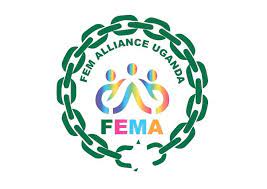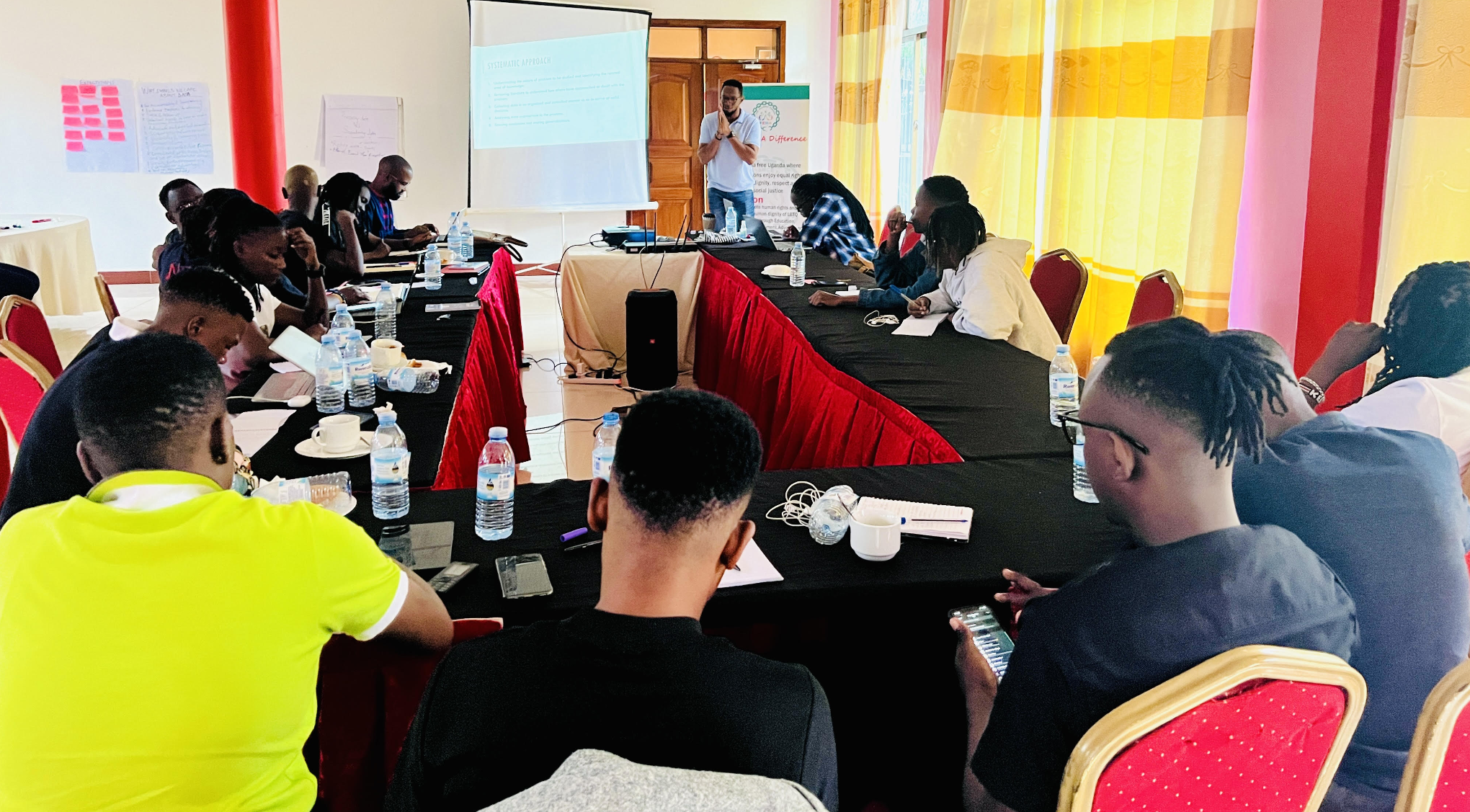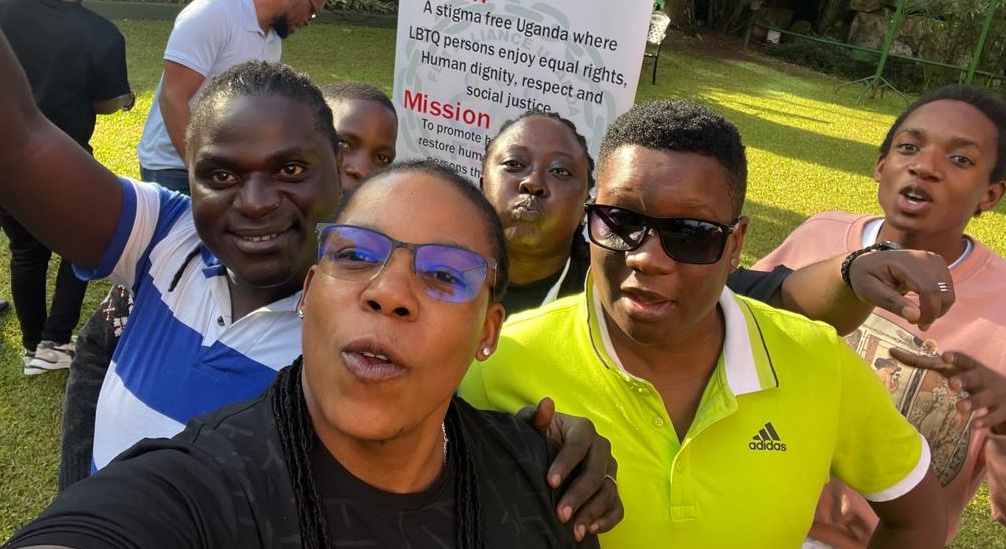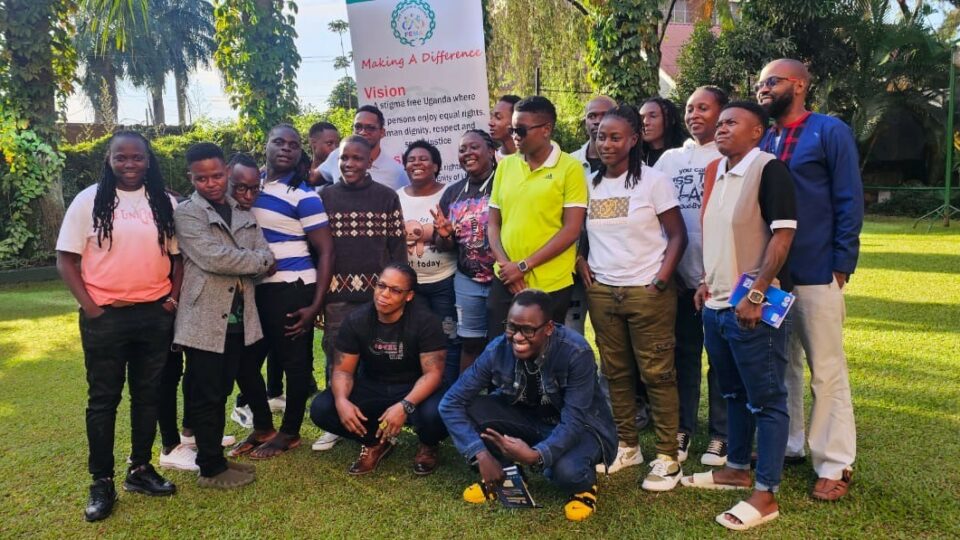Overview
For decades, trans and gender diverse activists in Uganda have struggled to make their voices heard in national and global health policy discussions. Lack of data, exclusion from key health programs and decision-making spaces, and limited advocacy skills made it difficult to push for meaningful change. Recognizing this gap, the Trans and Gender Diverse Capacity Enhancement Initiative was launched by Fem Alliance Uganda (FEMA) to equip trans and gender diverse activists with the skills to engage in data-driven advocacy. Through funding, technical assistance, and capacity-building, GATE has supported FEMA in empowering activists to push for inclusive policies and health programs in Uganda.

Breaking Barriers to Inclusion
Historically, trans and gender diverse community members have faced several barriers to engaging in health advocacy in Uganda. Critical national health policy processes such as the National Strategic Plan, Global Fund Cycles, and PEPFAR often overlooked the specific needs of trans and gender diverse individuals. Key challenges included limited available data on trans communities and a lack of skills and knowledge of trans activists to effectively use data in advocacy efforts. This has previously resulted in exclusion from mainstream health programs, particularly sexual and reproductive health and HIV services.
The Trans and Gender Diverse Capacity Enhancement Initiative (the Initiative) was developed to empower activists with essential skills in data-driven advocacy to influence national and global health policies in Uganda. The Initiative aimed to equip activists with the tools to effectively push for trans-inclusive health policies and programs.
Equipping Activists with Data Advocacy Skills
The Initiative training program was designed to be accessible and impactful, responding to the diverse backgrounds of the participants with varying levels of knowledge in data and advocacy. A needs assessment helped shape the curriculum, ensuring it addressed the specific challenges and knowledge gaps faced by trans and gender diverse activists. Based on this, a comprehensive training program was developed to include:
- Data collection and analysis.
- Advocacy strategies for national and global health policies.
- Engaging with decision-makers in the National Strategic Plan (NSP, Global Fund Cycle 8 (GC8), and PEPFAR processes.
To accommodate activists with varying levels of experience, the training blended theoretical lessons with hands-on exercises. Those in rural areas with limited access to data were encouraged to collaborate with organizations already collecting relevant information, while technological barriers were addressed by providing hands-on demonstrations, using basic tools with minimal technology, and providing printed materials to support continuous learning. Further support was provided post-training online to ensure sustained learning and advocacy efforts.
From Training to Policy Change
This Initiative proved that when trans and gender diverse voices are backed by data and strategic advocacy, real change is possible.
The impact of this Initiative has led to impactful change. The training engaged 35 trans and gender diverse activists from across Uganda, enabling them to gain critical advocacy skills. 80% of participants reported increased confidence in using data to support their advocacy, and 70% demonstrated improved knowledge of engaging with national and global health processes.
Significantly, the Initiative has led to active engagement in national health discussions leading to crucial changes in key decision-making spaces in Uganda. Activists successfully advocated for the inclusion of trans and gender diverse perspectives at the Country Coordinating Mechanism (CCM) in Uganda, ensuring community perspectives in HIV policy dialogues for Global Fund programming. Activists also successfully leveraged data to influence local health program leading to improved interactions with health workers and better access to services for trans and gender diverse individuals.

Challenges and Lessons Learned
Despite its success, the Initiative faced challenges. Trans activists, particularly in rural areas, encountered persistent stigma and discrimiation when advocating for inclusion in health services. Many reported facing resistance or backlash from local communities and health professionals making it difficult for them to engage fully or advocate effectively.
Another obstacle was limited institutional support for the inclusion of trans and gender diverse perspectives in health policies and programs. Although activists were passionate and well-trained, many organizations and decision-making bodies were slow to embrace the idea of community integration in mainstream healthcare services.
However, key lessons emerged:
- Collaboration is crucial: Building alliances with health professionals and other marginalized groups strengthens advocacy efforts.
- Sustained engagement is needed: Training alone isn’t enough – ongoing mentorship and networking opportunities help maintain momentum.
Voices from the Community
This Initiative has fostered a more informed and empowered trans and gender diverse community in Uganda, with activists better equipped to engage in policymaking and advocacy for inclusive health services. The data-sharing collaborations have laid the groundwork for long-term advocacy efforts, ensuring that trans and gender diverse voices are increasingly included in decision-making processes, making health services more responsive to our unique needs.

This training has been a game changer for us as trans and gender diverse activists. It’s not just about raising our voices anymore; we now have the tools to back up our advocacy with data, making our demands for things like access to hormonal therapy and sexual and reproductive health services more compelling. I feel more empowered to engage in national processes like National Strategic Planning and PEPFAR, and I’m confident that the changes we push for will be based on real evidence, reflecting the true needs of our community.
Anonymous participant, trans woman
The transformation we saw in participants after the training was incredible. They went from feeling disconnected from policy discussions to actively contributing to key health processes. This is a step toward ensuring that TGD people are no longer excluded from essential health services.
Jay Mulucha, Executive Director, Fem Alliance Uganda
Next Steps
Looking ahead, efforts will focus on expanding training opportunities, particularly in underserved and rural areas. Given the success of the initial training, there is a strong case for offering this capacity-building initiative more frequently and to a broader audience. This will involve seeking additional funding and partnerships to ensure that the training can be repeated, possibly integrating it into national health programs to make it more accessible and sustainable.
Strengthening networks among trans and gender diverse activists and allies is another priority to help sustain advocacy efforts. By building a community of practice to continue to share knowledge, resources and data, activists can tap into a network of peer mentorship, where more experienced activists can support newcomers, ensuring that the capacity-building efforts are long-lasting and impactful.
The long-term vision includes formal inclusion of trans and gender diverse individuals in national health strategies and increased data collection on trans and gender diverse health needs. More systematic and comprehensive data collection will enable better monitoring and evaluation of trans and gender diverse health outcomes. This would involve establishing formal channels for activists to regularly contribute data to national health databases, ensuring that trans and gender diverse community perspectives are consistently represented in decision-making spaces.
Fem Alliance Uganda aims to advocate for the development of trans- and gender diverse-specific health programs that cater to the unique needs of the community, particularly in HIV and sexual reproductive health and rights. By building on the foundation laid by this initiative, the aim is to create a more inclusive, responsive health system that recognizes and addresses the health challenges faced by trans individuals.
With continued support from GATE and growing momentum among activists, the fight for inclusive health policies in Uganda is ongoing. This Initiative proved that when trans and gender diverse voices are backed by data and strategic advocacy, real change is possible.





